
views
Amazeballs
“Amazeballs” means something is amazing or good. Towards the end of the 2000s, people were coming up with lots of quirky and wacky slang, with “amazeballs” being one of the silliest exclamations. It’s a combination of the words “amazing” and “balls,” and people use it in an exaggerated way to say something is good, excellent, impressive, or cool. It wasn’t totally embraced at the time, with lots of people claiming that it's cringey! Origin: It first appeared online in 2008 or 2009—bloggers Elizabeth Spiridakis and Perez Hilton both claim to have invented the word. Examples: “This drink is amazeballs. I need about 10 more!” “Thank you for helping me! You’re amazeballs.”
Awesomesauce
“Awesomesauce” is a way to say that something is impressive or good. “Awesomesauce” is another quirky exclamation that’s similar to “amazeballs.” You use it to talk about how awesome, amazing, impressive, or great something is—like a friend’s colorful collection of gel bracelets or Christina Aguilera’s newest single. Origin: It first appeared in a 2003 episode of the web series Homestar Runner and stayed popular through the 2010s. Examples: “Your bracelets are so awesomesauce! Where’d you get them?” “Have you tried that new bakery? It’s awesomesauce.”
Baller
“Baller” refers to something cool or someone who’s successful. Saying that something is “baller” is another way to say that it’s excellent, cool, or stylish, whether you’re talking about your new pair of Heelys or a friend’s sick skateboarding move. A “baller” is also an admirable way to refer to someone who’s rich, stylish, successful, and lives an extravagant lifestyle. Origin: It was first used in the 1980s and 90s to refer to basketball players, where it was popularized by hip-hop and rap artists who admired the players’ lifestyles. The term slowly morphed into meaning “excellent” or “successful” in the early 2000s. Examples: “Your sunglasses are so baller, bro.” “Did you see his car? He’s an absolute baller.”
Beast
“Beast” means someone is strong or skilled at something. No, we’re not talking about wild animals or scary monsters. “Beast” is a positive way to say that someone is extremely good at something, usually a sport or physical skill. For instance, you might hear someone say that Tiger Woods is a “beast” on the fairway or that Shaun White is a “beast” on the half-pipe. Origin: It was first used in the early 2000s. In the late 2000s and early 2010s, “beast mode” became the dominant way of describing someone as powerful or skilled. Examples: “You’re a beast at basketball, bro. You’re gonna go pro.” “She’s a beast with that sabre. She’s beaten every other fencer.”
Biatch (Biotch or Beyotch)
“Biatch,” “biotch,” and “beyotch” are another way to say “btch.” These slang words are an exaggerated way of saying “btch.” They can be used as a humorous term of endearment for your pals, or as an offensive term to insult or demean someone. You hear them used in lot of popular 2000s TV shows and movies, like Chappelle’s Show (“I’m rich, biatch!”) and Mean Girls (“It’s just gonna be a few cool people, and you better be one of them, biatch.”) Origin: “Biatch” is African American Vernacular English (AAVE) slang that was first used in the 1980s and 90s by hip-hop and rap artists. It entered mainstream popularity in the early 2000s. Examples: “I’ve missed you, biatch. Don’t leave me for too long again!” “You’re gonna come out with us and have fun, biatch!”
Bling
“Bling” refers to flashy and expensive jewelry and accessories. All things glitzy and shiny are considered “bling,” from thick diamond necklaces to rhinestone-encrusted Ed Hardy sunglasses. You might call someone decked in jewels “blinged out” or totally “blingy.” Origin: “Bling” was first used in rapper B.G.’s 1999 track “Bling Bling” (featuring Cash Money Millionaires) and gained popularity in the early 2000s. Examples: “Did you see all her bling? She’s gotta be worth millions.” “Love the blinged out look. Where’s your necklace from?”
The Bomb Dot Com
“The bomb dot com” means something is amazing or awesome. “Bomb” was a way of saying that something is good or excellent in the 1990s, so “the bomb dot com” was people’s way of bringing the phrase into the twenty-first century. The phrase references the growing popularity of the internet and it rhymes, so what’s not to love? Origin: Unclear, but likely the early 2000s. Examples: “This ice cream is the bomb dot com!” “Britney’s music video is the bomb dot com!”
Boss
“Boss” means that something or someone is excellent. “Boss” has been a slang term since at least the early 1900s, but it gained newfound popularity in the 2000s. Saying that someone or something is “boss” or “like a boss” is another way to say that they’re excellent, cool, or extremely skilled. The term was popularized by Slim Thug’s track “Like a Boss” in 2005 and The Lonely Island’s parody song, “Like a Boss,” in 2009. Origin: Hip-hop artists like Ice Cube, Das EFX, and Slim Thug brought “boss” to the mainstream culture in the late 1990s and early 2000s. Examples: “Those boots are totally boss.” “You’re a boss on the soccer field, Amari!”
Bounce
“Bounce” means “to leave.” When someone says, “Let’s bounce” or “I gotta bounce,” they’re saying that it’s time to head out and leave wherever they’re currently at. It’s often used to imply that the place you’re at isn’t fun and somewhere else is probably more exciting. Basically, it’s the cool, 2000s way of saying, “Let’s go” or “I’ve got to go.” Origin: It got its start in the 1990s, but stayed popular throughout the 2000s. Examples: “Let’s bounce, I’m kinda bored.” “Sorry, I gotta bounce. I have to work early tomorrow.”
Bromance
“Bromance” refers to a close, non-romantic relationship between 2 men. The 2000s was the decade of the “bromance,” which is a combination of the words “brother” (or “bro”) and “romance.” It simply describes 2 guys who have a very close, loving bond but aren’t romantically involved; basically, they’re best buds! Think: J.D. and Turk from Scrubs (and their real-life counterparts) or Chandler and Joey from Friends. Origin: It was first used in 2001. Examples: “Their bromance was the best part of the movie.” “Their bromance is so cute. They do everything together.”
Chillax
“Chillax” means “calm down” or “take it easy.” While technically 1990s slang, “chillax” was also popular in the 2000s. This term is a combination of the words “chill” and “relax.” It’s the ultra laid-back way of telling someone to calm down, sit back, and relax, or to say that you’re totally chilled and just hanging out. Origin: It was first used in 1994. Examples: “I can’t wait to chillax after work.” “Let’s just chillax tomorrow! I don’t want to do anything.”
Cool Beans
“Cool beans” is a way to express excitement, agreement, or approval. Saying “Cool beans!” is like saying, “okay,” “great,” or “awesome!” You usually say it in response to hearing something cool, like when finding out that Spider-Man 2 is hitting the theatres this summer, or to express your agreement or approval, like hearing that your older sister is dropping you off at the mall. Origin: It was used in the 1960s and 70s, but wasn’t really popularized until DJ Tanner made it her catchphrase on Full House in the 1990s. Examples: “You got a Wii? Cool beans!” “We’re going to get ice cream? Cool beans!”
Crunk
“Crunk” can mean “excited” or “intoxicated.” If someone tells you that they want to “get crunk,” they’re saying that they want to get wild, party, and possibly partake in some alcohol or cannabis (in some contexts, “crunk” is short for “crazy and drunk”). Hip-hop artists and rappers like Lil Jon are credited for bringing “crunk” into the mainstream lexicon. Origin: “Crunk” is AAVE slang that comes from the word “crank,” which means “to get excited.” It started gaining traction in the 1990s. Examples: “It’s the weekend and there’s a party tonight. Let’s get crunk!” “I got way too crunk last night!”
Dawg
“Dawg” is a term of endearment for a close friend. Calling someone “dawg” is similar to calling them “dude,” “man,” “bro,” “buddy,” or “pal.” While it’s technically a gender neutral term, it’s usually used to refer to a close male friend. People often use it to refer to guys in general, too. Origin: It likely comes from AAVE slang and was first used in the early 2000s. Examples: “What’s up, dawg? How ya been?” “I missed you, dawg!”
Epic Fail
“Epic fail” is a way to refer to a huge mistake, disaster, or embarrassment. Did you burn the cake for your nephew’s first birthday party? Epic fail. Did the drama club get all their lines wrong at the end of the year play? Epic fail. Got the picture? “Epic fail” is simply a humorous way to describe something that went completely wrong and was probably just a tad embarrassing or humiliating. Origin: “Epic fail” was primarily used by gamers on Internet forums like 4chan in the early 2000s. It didn’t hit mainstream popularity until the late 2000s. Examples: “The soufflé was an epic fail, it didn’t even puff up at all.” “The grand opening was an epic fail…no one showed up!”
Fo’ Shizzle
“Fo’ shizzle” means “for sure” or “definitely.” Basically, “fo’ shizzle” is the 2000s way of expressing affirmation enthusiastically. Adding “-izzle” to the end of words was a popular practice by rappers in the 1990s, so this is simply the way you say, “For sure!” Origin: “Fo’ shizzle” was coined by Snoop Dogg in 2000 and it became one of his most iconic catchphrases. A similar term, “fo’ sheezy,” was used by rapper E-40 in the 1990s. Examples: “Fo’ shizzle, I can pick you up.” “Oh, fo’ shizzle. This is Justin Timberlake’s best song.”
Holla
“Holla” is an exclamation, or it means to contact someone. You might shout “Holla!” to express your excitement about something, to greet someone enthusiastically, or to get someone’s attention. It’s also common to say “holla at me,” which is a way to ask someone to call or text you. Origin: “Holla” most likely comes from the word “holler,” which means “to shout.” It was first used as slang for “contact me” in 2003, and it may have AAVE origins. Examples: “I got us tickets to the concert! Holla!” “Holla at me when you’re free!”
In Your Face
“In your face” is a way to taunt someone and gloat about your success. “In your face” is a teasing phrase or insult that you say after beating someone in something, like after you win a close game of Mario Kart: Double Dash against your pal. This is a way to rub in your victory and basically, call the other person a loser. Origin: It was first used at sports games in the 1970s and 80s, though it gained more mainstream popularity in the 2000s. Examples: “In your face! Told you I was going to win!” “I knew I was right! In your face!”
Kewl
“Kewl” is a slangy way of writing “cool.” “Kewl” is simply a ~cooler~ way of spelling “cool.” You use it in the same way to say that something is great, excellent, or stylish, like when admiring your friend’s Lizzie McGuire-inspired hairdo, or to express your agreement, like okaying your pal’s decision to watch The Lord of the Rings over the weekend again. Origin: It was first used in the 1990s, but popularized in the 2000s. Examples: “Those hair clips are so kewl!” “The effects in that movie were so kewl.”
Le
“Le” is a funny addition to words, and is used a lot in memes. Adding “le” (which is the French word for “the”) to the beginning of ordinary words is a common 2000s practice. Since the French language is often seen as sophisticated to non-speakers, saying “I’m le tired” or “le party was fun” is a silly or mocking way to make something sound more refined (even if “le” isn’t used correctly!). “Le” gained further popularity in the late 2000s and early 2010s in various rage comics. Origin: “Le” was first used in a 2003 animation created by Jason Windsor called Ze End of the World. Examples: “Le beach sounds nice, I could use a vacation.” “I’m le hungry. Can we eat soon?”
Mega
“Mega” means something is really great or cool. Basically, “mega” is a way to say that something is super awesome or excellent. People usually add it in front of other words to add emphasis to what they’re saying, like “that Paris Hilton is mega rich” or “the party was mega fun.” Origin: It gained popularity in the 2000s. Examples: “I’m mega excited for the party tomorrow!” “Did you see that guy? He’s mega hot.”
Metrosexual
“Metrosexual” refers to a guy who’s well-groomed and fashionable. “Metrosexual” is a popular 2000s slang term that’s fallen to the wayside in recent years. It was primarily used to describe straight men who engaged in activities that were seen as stereotypically feminine, like getting facials or shopping for clothes. Unfortunately, it was often used as an insult or to mock guys for liking these activities. Origin: The term (which is a combination of “metropolitan” and “heterosexual”) was coined by writer Mark Simpson in the 1990s, but it didn’t gain popularity until the 2000s. Examples: “He always looks so put together. He has a total metrosexual vibe.” “I love a metro guy who looks after his appearance.”
Newbie/Noob
“Newbie” or “noob” refers to someone who’s inexperienced at something. Calling someone a “newbie” or “noob” is another way to say they’re new to doing something. You usually use it in a derogatory way to indicate that they’re not very good at whatever they’re doing, and annoying because of it. Origin: “Newbie” was coming online in the 1980s, but “noob” didn’t break out until the 1990s. It gained further popularity with online gaming and forums in the 2000s. Examples: “This total noob is keeping us from winning the game.” “Can you help her? She’s a total noob at texting.”
No Doubt
“No doubt” is a way to express agreement. In other words, saying “no doubt” means the same thing as “yeah,” “yep,” or “for sure!” It’s definitely a more chill and relaxed way to say that you agree with someone and have no problem going along with what they said. Origin: Unclear, but it may have gained popularity in songs by hip-hop artists and rappers like Wu-Tang Clan. Examples: “That was the best movie I’ve ever seen.” “No doubt.” “Wanna hang out tomorrow?” “No doubt.”
No Sh*t, Sherlock
“No sht, Sherlock” is a sarcastic way to say that something’s obvious. If your friend says, “Look, it’s raining” while you’re getting soaked in a torrential downpour, you might retort back, “No sht, Sherlock.” This is a humorous and sarcastic way to say that someone’s observation is super super obvious or already known by everyone else with common sense. Origin: It’s a play on the popular character Sherlock Holmes, who is known for his incredible detective skills. This phrase may have been used as early as the 1960s and was still popular in the 2000s! Examples: “You’re cold? No sh*t Sherlock, you’re not wearing a coat!” “I’m hungry.” “No sh*t Sherlock, I can hear your stomach growling.”
Owned/Pwned
“Owned” or “pwned” refers to thoroughly defeating someone at something. As a slang term primarily used in gaming, you might just shout, “You got owned” over your headset after beating the enemy team in Halo 2. Both “owned” and “pwned” (which is simply a misspelling of “owned”) are gloating phrases that mean you utterly demolished or destroyed someone. Origin: “Owned” was first used by hackers in the 1990s, where it referred to gaining control of someone’s computer. It was adopted by gamers in the 2000s. Examples: “Bro, I owned you! Are you actually trying to beat me?” “You just got pwned! Good luck trying to win the next game.”
Peace Out
“Peace out” means “goodbye” or “to leave.” While technically slang from the 1980s and 90s, “peace out” stuck around for the 2000s, too. This is a casual way to say goodbye to your friends, which is often accompanied by the peace sign hand gesture (✌️). You can also use “peace out” to tell someone that you have to get going. Origin: The first instance of “peace out” may have been in the Beastie Boys' 1989 track 3-Minute Rule. Examples: “Peace out! I’ll see you guys on Monday!” “I’m getting pretty tired, so I’m gonna peace out.”
Peeps
“Peeps” refers to your friends or acquaintances. “Peeps” is simply a short way of saying “people.” However, it doesn’t usually refer to any sort of people—you typically use it when talking about your close friends, family members, or acquaintances. So, it’s similar to saying “homies,” “bros,” or “pals.” Origin: It dates back to the 1950s, but it gained mainstream popularity in the 1990s and 2000s. Examples: “I’m just hangin’ with the peeps if you want to come over, too.” “My peeps got my back and I’ve got theirs.”
Photobombing
“Photobombing” refers to jumping in someone else’s picture as a joke. While photobombing has probably existed since cameras were invented, it didn’t become a term until the 2000s. It refers to getting into a camera’s frame while someone’s getting their picture taken, whether they’re a friend or a stranger. The photobomb can be a subtle as making a funny face in the background or as outrageous as jumping into the frame. Origin: It was first used in 2008. Examples: “OMG this random guy totally photobombed our family pictures.” “I can’t stop laughing at this pic that Amber photobombed us in!”
Poppin’
“Poppin’” means something is cool, awesome, or stylish. If someone tells you that your outfit or makeup is “poppin’,” take that as a huge compliment! This trendy term means that something is standing or popping out in a good way and looks totally cool or awesome. Origin: It comes from AAVE slang and was made popular in the 2000s in songs by Lil Mama (Lip Gloss) and Chris Brown (Poppin’). Examples: “Your eyeshadow is poppin’ tonight!” “That necklace is poppin’! You look great.”
Rawr
“Rawr” is a playful way to express affection. The emo and scene subcultures were big in the 2000s, and “rawr” may have been one of their biggest contributions. This bit of quirky, ~random~ slang is meant to imitate the sound of a dinosaur and express how they might say, “I love you” to one another. So, people say it to each other to express their own affection, too. Origin: “Rawr” gained popularity in the mid-2000s, where it usually accompanied cutesy pictures of dinosaurs. Examples: “Rawr means ‘I love you’ in dinosaur xD” “Rawr! I miss you <3”
‘Rents
“‘Rents” is a short way to say “parents.” If you’re looking for a casual way to refer to your parents, “‘rents” is the answer. Kids and teens usually say it when referencing their mom and dad, rather than calling their parental units “‘rents” directly to their faces. Origin: Not very clear, but it may have been used in the 1980s and 90s. Examples: “Ugh, my ‘rents grounded me for staying out past my curfew.” “My ‘rents annoy me so bad sometimes, but I guess they could be worse.”
Selfie
“Selfie” refers to a photo that you take just of yourself. With the rise of camera phones and webcams in the 2000s, people started to take more and more pictures of themselves. So, the term “selfie” was born (which likely comes from the term “self-portrait). It describes a photo that you take just of yourself, which you often post on social media. Origin: “Selfie” was first used in 2002 on an Australian forum website. Examples: “I looked good last night so I took a billion selfies.” “You look great in that selfie! Post it!”
Sick
“Sick” means “cool,” “awesome,” or “excellent.” While getting sick might be bad, saying that something is sick is quite the opposite. It’s another way to say that something is cool, amazing, awesome, excellent, or stylish—like your friend’s puka shell necklace or the newest episode of Lost. Origin: It got its start in the 1980s and gained popularity in the 1990s and 2000s. Examples: “Loving the new haircut! You look sick!” “You got into Harvard? That’s so sick!”
Sketchy
“Sketchy” means something is suspicious or untrustworthy. If something or someone is raising red flags, you might say it’s “sketchy.” This is another way to say that it appears unreliable, untrustworthy, or unsafe. For instance, you might call a piece of pizza that’s been left out all night “sketchy,” or refer to a part of town that sees a lot of break-ins as “sketchy.” Origin: “Sketchy” likely comes from the word “sketch,” which refers to a drawing that’s not finished and undetailed. It’s been around for a while, possibly as early as the 1800s. Examples: “I don’t know about going to that sushi place, it seems kinda sketchy.” “Let’s take a different road. That one has no lights and seems sketchy.”
Smexy
“Smexy” means someone is both smart and sexy. Officially, “smexy” is a blend between the words “smart” and “sexy.” So, it describes someone who’s a total hottie and intelligent, to boot. “Smexy” can also be a fun, different way of saying “sexy.” Origin: “Smexy” was used as early as 1997, though the “smart and sexy” definition didn’t appear until 2004. Examples: “There was a gorgeous guy in the library today, he was totally smexy.” “Woah, you’re looking smexy in that dress!”
Sweet
“Sweet” expresses amazement or approval. You use “sweet” in a similar way to other 2000s staple slang, like “cool beans” or “sick.” It’s a way to say that something is super cool, awesome, or amazing, like your neighbor’s “sweet” convertible. You can also use “sweet” to express your agreement or approval about something. Origin: It’s unclear, but “sweet” was likely around in the 1980s. Examples: “That new Nintendo DS looks pretty sweet.” “The new season of One Tree Hill comes on today!” “Sweet!”
Take a Chill Pill
“Take a chill pill” is a way to tell someone to relax. If someone’s getting upset or agitated and it’s starting to bother you, you might ask them to “take a chill pill.” You’re not telling them to take a literal pill, though. You’re just asking them to take a deep breath, calm down, and relax. Origin: It originated in the 1980s, but was still widely used in the 2000s. Examples: “Stop freaking out and take a chill pill, please.” “Take a chill pill. We’re not going to be late, I promise.”
Talk to the Hand
“Talk to the hand” means you don’t want to listen to someone. This is a rude but slightly humorous way of dismissing someone and telling them that you’re not interested in hearing them speak anymore. Instead of talking to you face-to-face, they can speak to your hand (which, of course, has no ears or mouth). You usually push your palm into the other person’s face when you say this, too. Origin: It was popularized in the 1990s, likely coming from the TV show Martin. Examples: “Talk to the hand because the face ain’t listening.” “I’m tired of this. Talk to the hand.”
Tight
“Tight” means something is cool, excellent, or awesome. Saying that something is “tight” is similar to saying that it’s “sick,” “sweet,” or “cool beans.” For instance, you might describe your friend’s newest longboarding trick as “tight” or call Green Day’s newest album “tight.” Origin: “Tight” was first used in the late 1990s and early 2000s. Examples: “Woah, that trick you did was so tight!” “It’s so tight that we get to stay home from school tomorrow.”
That’s Hot
“That’s hot” means something is amazing or cool. While “that’s hot” was used in the 1990s, there’s no denying that it was made popular by Paris Hilton in the 2000s. Her iconic catchphrase (which she trademarked in 2007) is an ultra-cool way of saying that you like something or find it really awesome or amazing. Origin: Likely the 1990s, but popularized in the 2000s by Paris Hilton. Examples: “Did you see how he threw away his trash? That’s hot.” “Wearing my Converse with my dress? That’s hot.”
Totes
“Totes” is a shortened way of saying “totally.” Like “totally,” you can use “totes” to add emphasis to what you’re saying, or to express your agreement or approval. It’s totes versatile, can you believe it? “Totes” also led to the creation of the silly phrase “totes McGotes” in 2009, which stayed popular throughout the 2010s. Origin: Likely around 2006, though it may have been used earlier. Examples: “That dress is totes cute on you.” “We should get pizza tonight.” “Totes, that sounds amazing.”
T9 Abbreviations
T9 abbreviations refer to texting slang like “l8r.” While they originated in the 1990s, T9 abbreviations were still popular in the early 2000s. T9 refers to the keypad on cell phones where each number corresponds to different letters. To make texting quicker, people used shortcuts to represent their words, like “c u” (“see you”) and “l8r” (“later”), as well as acronyms like “lol” (“laugh out loud), “lmk” (“let me know”), and “btw” (“by the way). Origin: The mid-1990s. Examples: “C u l8r, alig8r!” “Gtg, ttyl!”
Word
“Word” is a way to acknowledge or agree with someone. “Word” is used similarly to “okay” or “cool”—you typically say it to show someone that you heard what they said. You can also use it similarly to “exactly” to express your agreement with what someone said, too. Origin: Unclear, but it’s been used since at least the early 2000s. Examples: “I’m coming to pick you up at 5.” “Word.” “50 Cent is the best rapper right now.” “Word.”
Yo Mama
“Yo mama” is a joking way to insult someone’s mother. “Yo mama” is the set-up to a joke that is meant to insult or diss someone’s mom. Most jokes poke fun at their mom’s appearance, intelligence, and age. They’re usually pretty cheesy and silly, so they’re meant to be taken as a piece of lighthearted comedy rather than a genuine attempt to taunt someone into a fight. Origin: These jokes stem from a game called the dozens, which is primarily played in Black communities. Jokes starting with “yo mama” gained popularity in the 1990s and 2000s. Examples: “Yo mama is so old, her birth certificate has expired.” “Yo mama is so dumb, when she heard it was chilly out, she grabbed a bowl.”











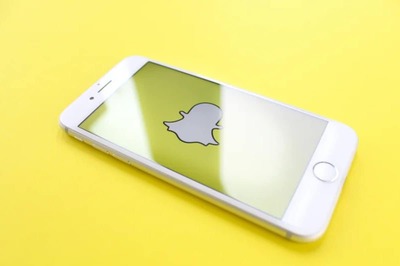
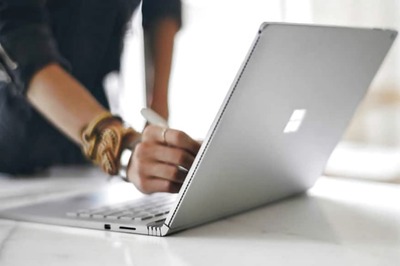
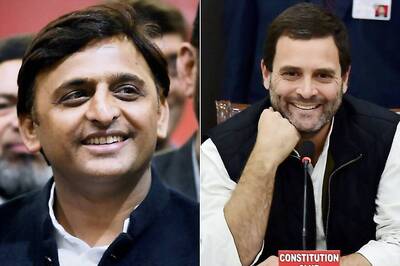
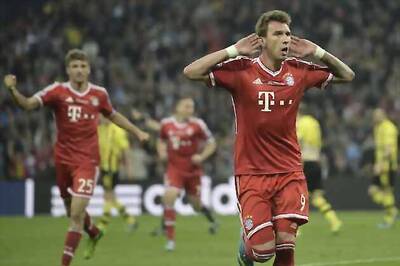
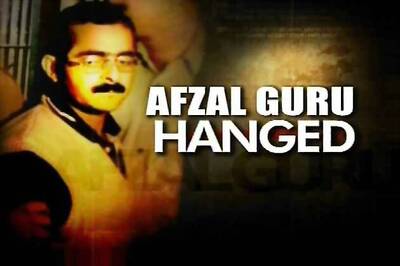
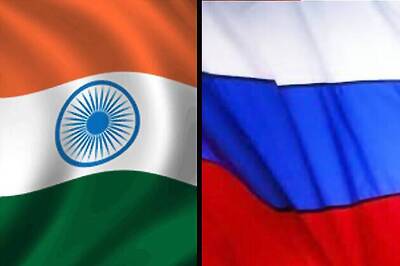


Comments
0 comment